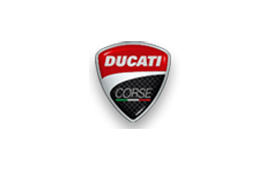may 05, 2017 - Brembo
Brembo brakes put to the test at the 2017 Spanish MotoGP race
Everything you need to know about the demands on the braking systems mounted on the bikes ridden by Viñales, Rossi, Marquez and Lorenzo
With the 3 non-European rounds out of the way, #motogp heads to Spain for the 4th round of the 2017 season, scheduled to take place from 5 to 7 May on the Circuito de Jerez. Opened on 8 December 1985, this track has hosted the premier class since 1987. Oddly enough, however, in 1988 the race was labeled the Portuguese GP because the Spanish GP was held in Jarama.
In 1992 it became the first track in the Championship to replace the hay bales with airfences. The 4.423 meter of the track alternate between slow, fast and very fast corners. The 13 turns (8 right-handers and 5 left-handers) represent 31 percent of the total length and provide numerous places for passing.
The significant changes in slope demand a bike that handles well and that is well balanced, in addition to being stable in braking.
Once again this year, 100% of the bikes participating in the #motogp championship are equipped with #brembo brakes and Brembo's engineers have assigned a difficulty index for the brakes to each circuit on the calendar.
According to the #brembo engineers who assist all the #motogp riders, the Circuito de Jerez is the most demanding track on brakes in the first third of the season, in other words, out of the first 6 Grand Prix races. On a scale of 1 to 5, it earned a 4 on the difficulty index, the same score as Aragon and Brno.
The demand on the brakes during the GP
On every lap, the riders will have to use the brakes 11 times for a total of 33 seconds. In absolute terms, that is not excessively high, especially if compared with the 38 seconds per lap at Austin and the 37 at Losail. However, on these two tracks, the lap records range from 1’55’’ to 2’05’’, whereas at Jerez lap times are 1’39’’ and that gives the Spanish track the highest percentage in the championship of time spent braking: 33 percent.
The presence of 3 moderate braking sections, in other words, with less than a 35 km\h drop in speed, translates into an average race deceleration of just 1,07g. Lowering this average are the values of 0,7g on turns 4 and 7 and 0,8g on turn 10. Only Austin, with 0,92g, has a lower average value.
Adding up all the force the rider applies on the #brembo brake lever from flag to flag, the value is greater than 140 kg, a value that Losail and Valencia also reach. In practical terms, on each lap, the rider has to apply a force of 52 kg.
The most demanding braking sections
Of the 11 braking sections on the Circuito de Jerez, 2 are classified as demanding on the brakes and 5 are of medium difficulty. The remaining 4 have a low impact on the braking systems.
The most complicated braking section is on the first turn (Expo 92) that comes after a 600 meter straight, which is the longest on the track. The riders begin to brake at 281 km\h and complete the operation only after 4.6 seconds, during which they cover 219 meter. In order to drop to 85 km\h, they apply a load of 6,9 kg on the brake lever and undergo maximum deceleration of 1,5g.
Braking operations on turn six (Dry Sack) are also quite difficult. The #motogp bikes go from 293 km\h to 65 km\h in 252 meter and 5.5 seconds. However, the load on the lever (6,6 kg) is lower, as is the pressure of the #brembo HTC 64T brake fluid (11,5 bar) and deceleration is 1,4 g, which is 0,2g higher than the 200 to 0 k\h of a Porsche 993 Turbo.
Also noteworthy are the braking system's 10,2 bar on the second turn, the equivalent of about 7 times the pressure of beer on tap. The #motogp bikes brake for 3.3 seconds to set up the turn at 66 km\h, but the deceleration is only 1,1g.
Brembo performance
#brembo brakes have won 26 out of the 38 Spanish GP editions, including the last 23. Yamaha has won the last 2 editions, but Honda boasts no less than 16 wins with #brembo brakes. This year, Valentino Rossi is chasing his 10th win at Jerez. He won in 1997 in the 125 class, in 1999 in 250, in 2001 in 500 and 6 times in #motogp. Each time he won, he was using #brembo brakes.



























































 Italian
Italian  Share
Share Share via mail
Share via mail  Automotive
Automotive Sport
Sport Events
Events Art&Culture
Art&Culture Design
Design Fashion&Beauty
Fashion&Beauty Food&Hospitality
Food&Hospitality Technology
Technology Nautica
Nautica Racing
Racing Excellence
Excellence Corporate
Corporate OffBeat
OffBeat Green
Green Gift
Gift Pop
Pop Heritage
Heritage Entertainment
Entertainment Health & Wellness
Health & Wellness